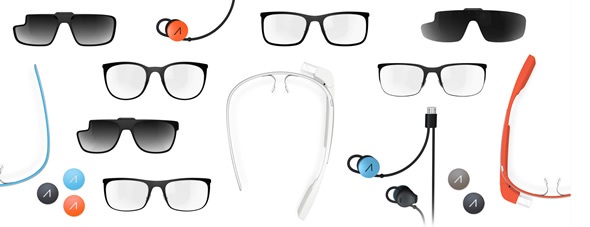An article recently published in the International Journal of Surgery shows the potential applications for Google Glass in the surgical setting, particularly in relation to training.

Personal portable information technology is advancing at a breathtaking speed. Google has recently introduced Glass, a device that is worn like conventional glasses, but that combines a computerized central processing unit, touchpad, display screen, high-definition camera, microphone, bone-conduction transducer, and wireless connectivity.
The authors of the study obtained a Glass device through Google's Explorer Program and have tested its applicability in their daily pediatric surgical practice.
The Glass was worn by the attending surgeon daily for 4 consecutive weeks in a University Children's Hospital. A daily log was kept, and activities with a potential applicability were identified.
Colleagues, staff, families and patients overwhelmingly had a positive response to Glass and several useful applications for the technology were found including hands-free photo/video documentation, making hands-free telephone calls, looking up billing codes, and internet searches for unfamiliar medical terms or syndromes.
However, there were also several drawbacks to the early technology including quality of the picture.
Lead author of the article, Oliver Muensterer, said of the experimental study:
"We are just beginning to explore the functionality of this new device in Medicine and Surgery. Glass is essentially a head-worn computer with a screen, camera, microphone and audio transmitter, which is controlled by voice commands. This allows a surgeon to interact with the device without breaking scrub, even during surgery."
"The applications of Glass are only limited to one's imagination. We have used it for photo- and video documentation, for looking up rare or obscure medical conditions on-the-spot on ward rounds, and even for such boring tasks as coding and billing. Considering that this is still an experimental device, it actually performed quite well."
"A big issue with Glass is how to handle patient privacy, particularly because the device connects to the internet via WiFi and thereby streams its data through Google's servers. By the way, these issues are the same that currently exist with physicians using their smartphones for applications pertaining to patient care, including taking photos of pertinent findings. It would be great if an encrypted version of Glass were available in the future for medical use, including the exclusive streaming to secure servers."
"In the future, we are going to study how the projection of real-time info such as vital signs, laboratory values, and X-rays onto the head-up display during a polytrauma resuscitation can aid the trauma leader in making critical decisions in a timely fashion without the need to look it up on a separate computer screen. This is just one of the clinical applications we envision for Glass."
The Managing and Executive Editor of the Journal, Dr. Riaz Agha, commented: "We're glad to bring this interesting report on the early uses of Google Glass in the healthcare setting to our global readership. It has much potential and we look forward to publishing more of such reports and see how this technology evolves."